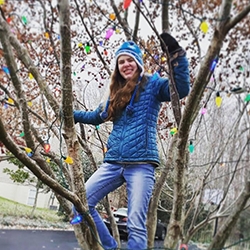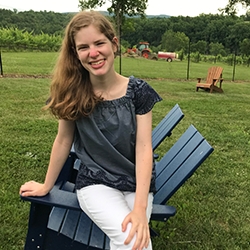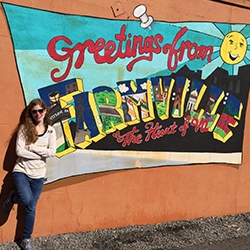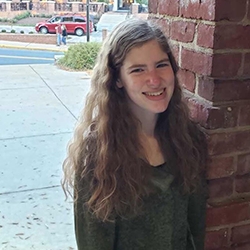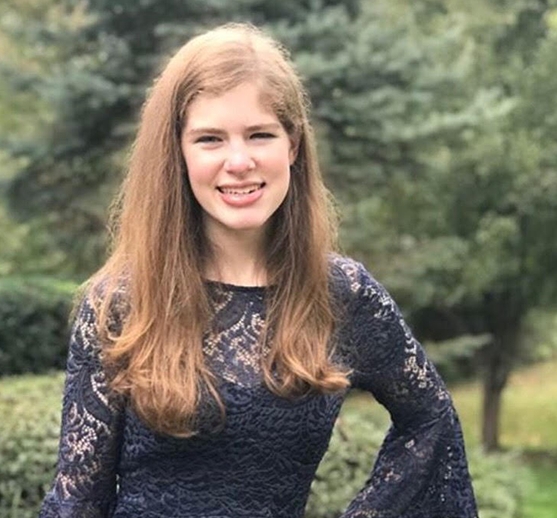
Meet Olivia Loper
Hometown
Manassas, Virginia
College of Enrollment
Longwood University
Major
Communication Science Disorders
Projected Graduation
Spring 2022
Words to live by
Never stop trying. You can do it. There’s a light at the end of the tunnel. You just have to get through the tunnel.
My story
I went to church and prayed a lot. Making friends wasn’t easy for me. I felt like no one knew what I was going through and thought that no one would accept me for me. A lot of times, I would force myself to go up to people and introduce myself. I made close friends with my neighbors. They are all the same age as me, but none of them have had a brain tumor. Even though I thought it wasn’t possible, they accepted me for who I am. That made me so happy. We’re still friends to this day. I tried to think about all the positive things that happened in my life, instead of the negatives. I never would have met many people if it wasn’t for my brain tumor. My parents paid for my surgery, and I always felt bad because my surgery probably cost a lot, and I felt like I was to blame for their financial situation...
Strengths
Brain tumor survivor, creative, determined.
Weaknesses
Brownies, food of any type, TV.
Passions / hobbies
Helping others, walking my dog, writing stories.
Advice for other young adult cancer survivors
Don’t give up. Try just a little bit harder each day to achieve your goal, and you will.
Biggest take-away(s) from your cancer experience
Even when times are tough, you can’t give up. Keep fighting.
Where do you see yourself 5 years after graduation?
Working as an audiologist helping people hear better.

Top 3 life goals
I want to visit London, learn how to ride a bike, and become a better driver.

Top 3 things you are grateful for since remission.
My friends, all the opportunities I’ve had, and having a healthy and happy life.

How has the MHH scholarship helped you?
It helped me go to a great college.
Recipients
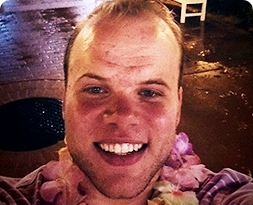
JACOB VANDERLOOP
University of
Wisconsin-Oshkosh
Wisconsin-Oshkosh
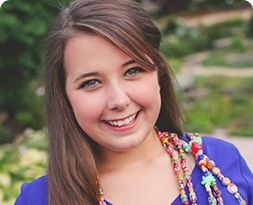
KELLY HOEPPNER
Shepherds
College
College
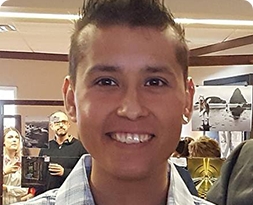
RICKY RAMIREZ
Truckee Meadows
Community College
Community College

POORNA RAJEEVAN
Medical University
of the Americas
of the Americas

RYAN DIERINGER
University of Wisconsin,
Madison
Madison
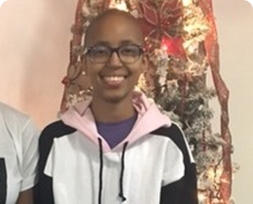
DEJA RUSH
The Ohio
State University
State University
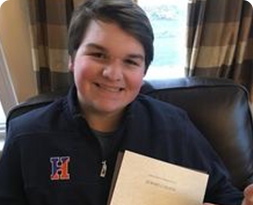
MAXWELL HARRIS
Hobart and William
Smith Colleges
Smith Colleges

CAITLIN PUPICH
University of Nevada,
Reno
Reno
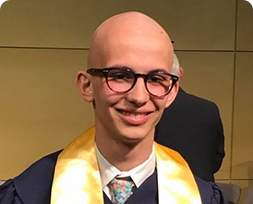
TYLER TRENT
Purdue
University
University
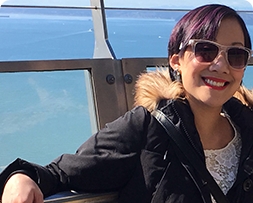
Alexis Hoffer
University of
Washington
Washington
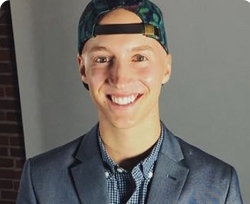
JOHNNY HARTMAN
California Polytechnic State University,
San Luis Obispo
San Luis Obispo
